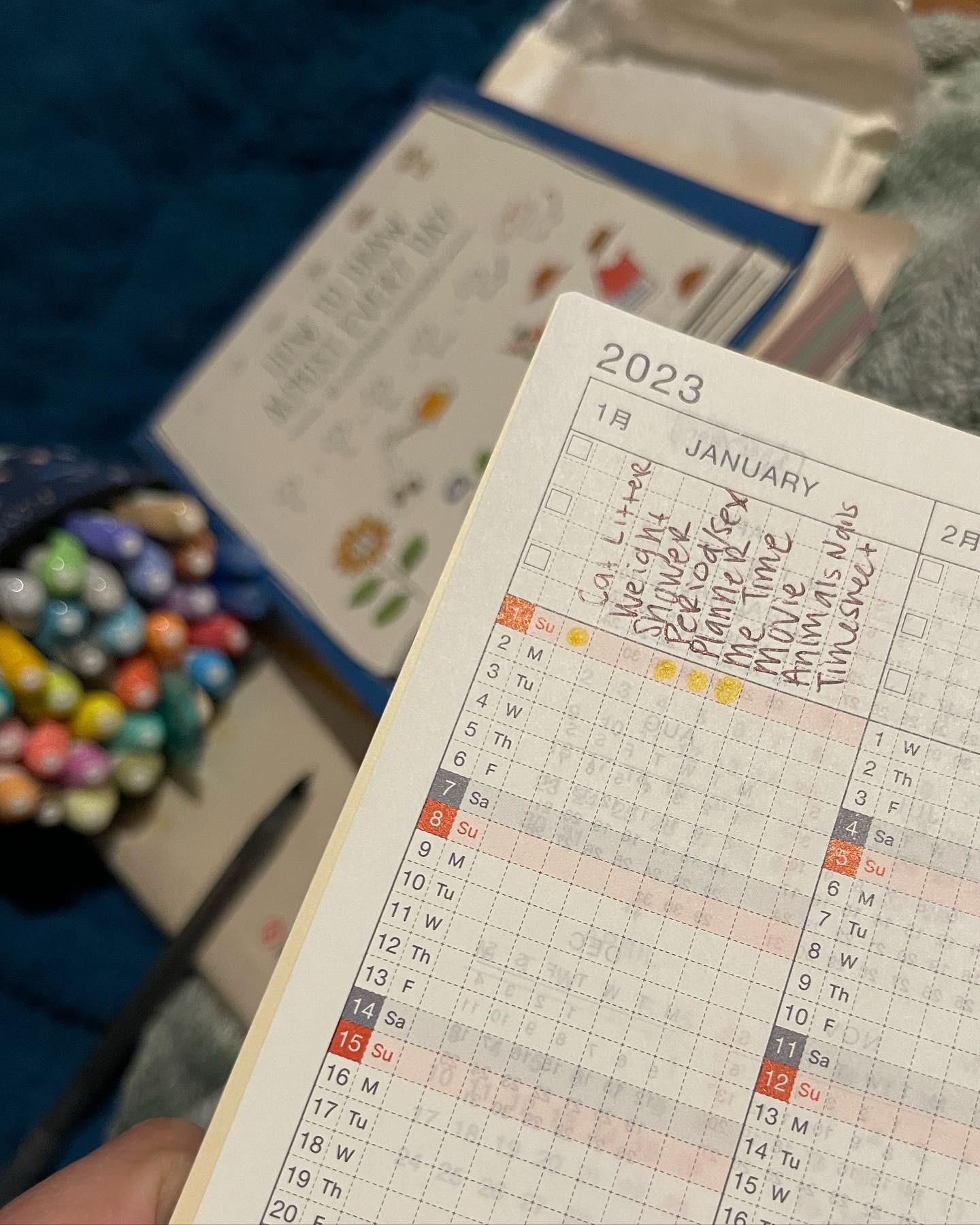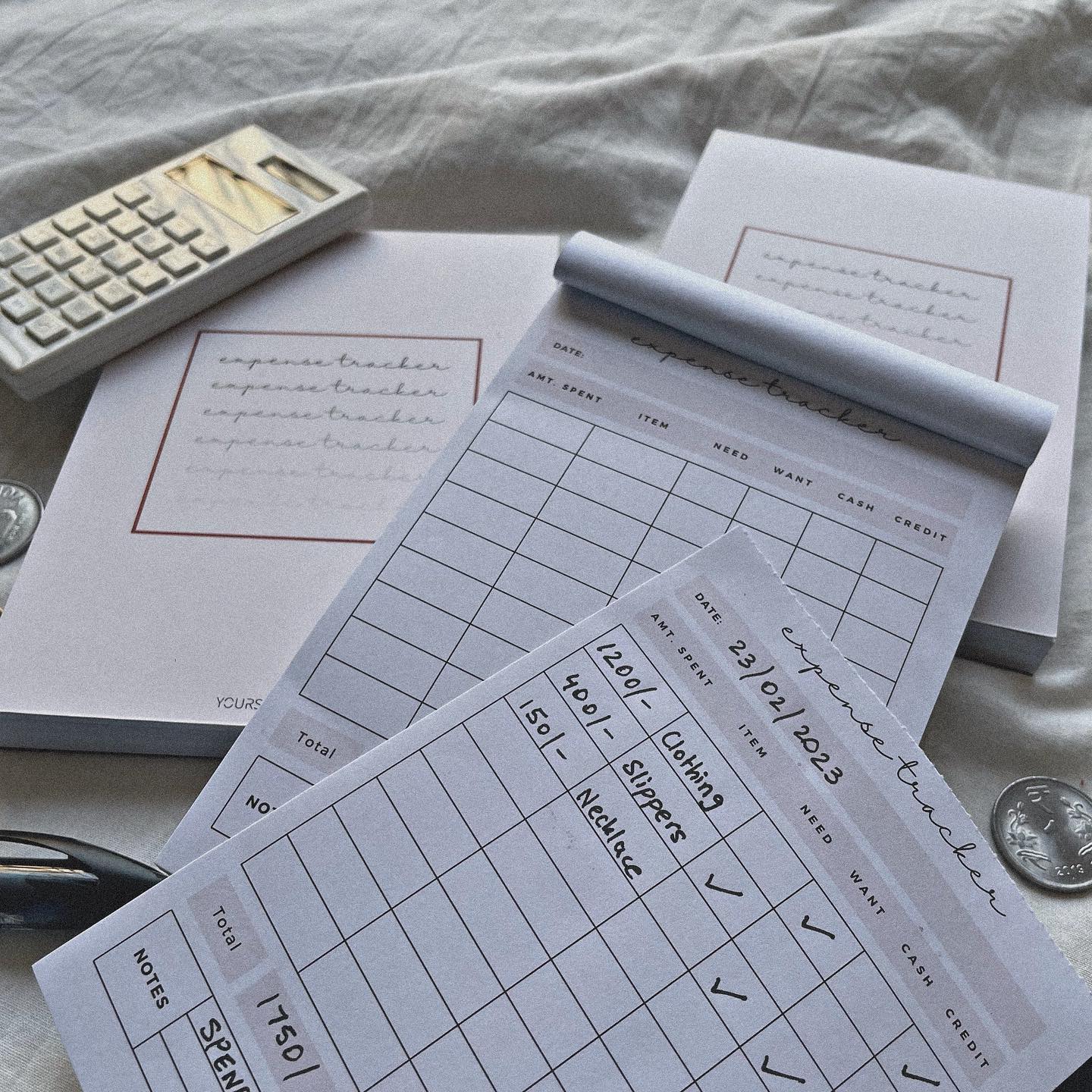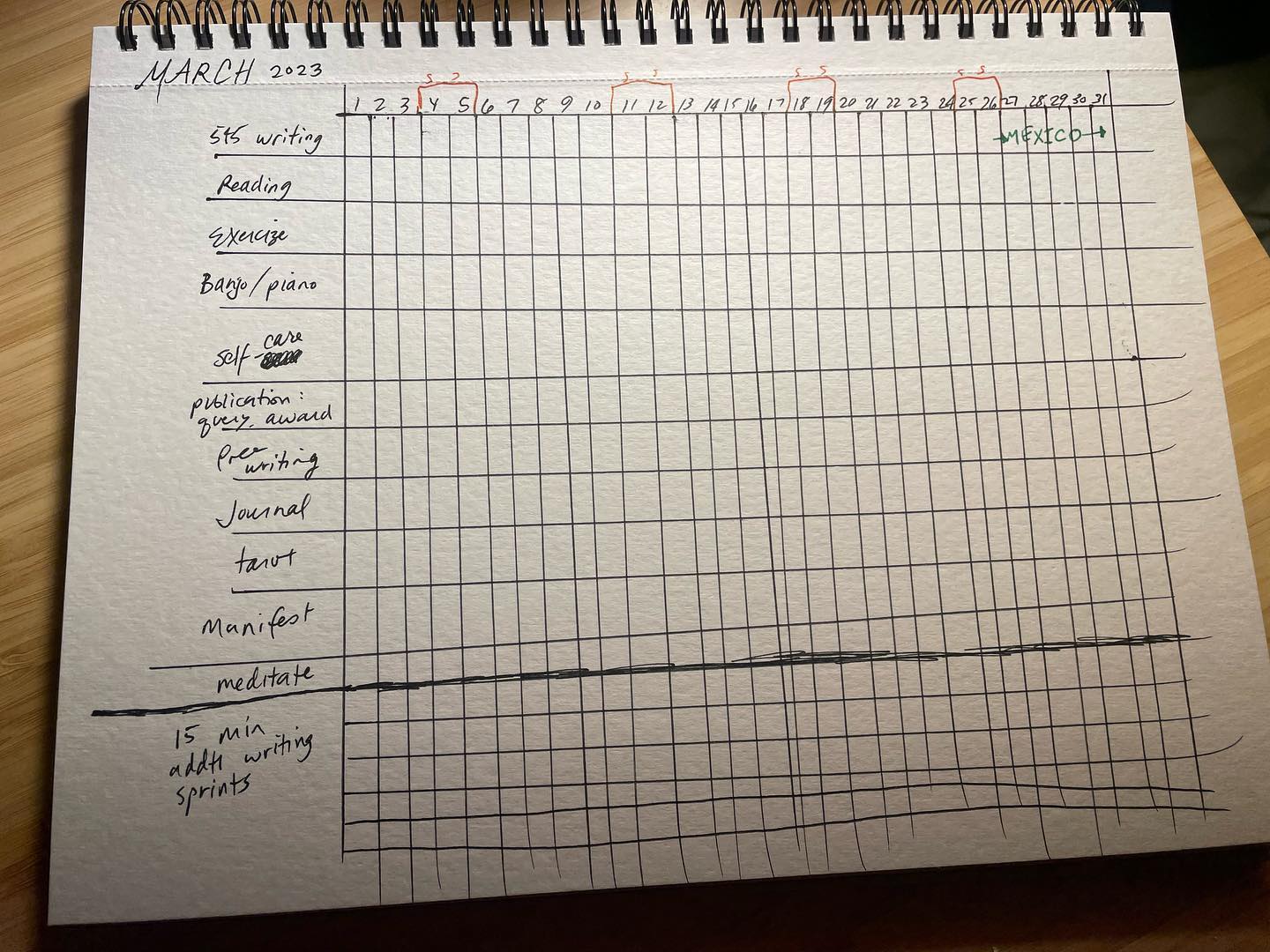The Guide to Tracking Habits: Why and How to Track Your Habits Properly
If you want to stay with your habits forever, a simple and effective way is to use a habit tracker. Results are often measured, quantified, and tracked in a variety of ways. Ask for feedback on every little metric. It signals when they need to move forward or change direction. For chefs, tasting the ingredients tells them if they have achieved the desired end goal. This provides instant feedback on the success of a particular recipe. Just as chefs develop recipes through trial and error, we often form our habits through trial and error. But there is an important difference between cooking and the process of forming habits.
Feedback is often delayed when it comes to habit. It’s easy to try different ingredients for different recipes and watch the bread rise in the oven. However, it is difficult to imagine the process of developing habits. Maybe you’ve been running for a month and still haven’t noticed any changes in your body. Forming habits is a long process. It often takes time to achieve the desired results. Your efforts will pay off in the long run, but it’s important to keep working in the short term. This is where the free habit tracker template comes to the rescue. This is an easy way to form and maintain your habits.

You can allocate each day in your \routine, in each day you need to write down your habits and follow them carefully every day. To make this process as easy as possible, you can use the visual checklist template. In a checklist, you can write key points for tracking habits. All you have to do is get used to this routine (while building positive habits) and stick to the established habits carefully. You can also fill the habit tracker with points. A habit tracker confirms that a habit has been completed (you have mastered it). This is a sign that you are actively progressing.
What is the process of tracking your habits?
Tracking your habits is about aligning all the processes you perform on a daily basis using a variety of tools. The process of tracking your habits affects your ability to work, communicate with other team members, habits affect your ability to complete projects that must meet goals and exceed expectations. For example, you and your team are starting a big project. Your job is like building a long row of dominoes. It’s good to place the dominoes in an efficient chain, but it’s very frustrating when a key factor is the cause of the failure.
Following your own habits, doing any job is always a brave and exciting thing. After all, habits ensure proper activity and compliance with responsibility. In fact, the best way to succeed in a large, relatively complex project is to manage it effectively. This is helped by formed habits, because correctly formed habits ensure the proper coordination of all processes, tools, team members to create projects that meet the defined goals and requirements. Success at work is possible if you carefully monitor your daily habits and follow them consistently. It would seem, how are our daily habits combined with success at work? In fact, these 2 concepts are very closely related.
Successful projects do not happen by chance. In practice, the error rate for most organizational business projects is about 70%. Failure means that the project does not achieve its initial goals or does not fully fulfill the tasks set before it.
Formed habits increase your chance of success, because a person who has clearly formed habits, which he follows, is responsible, acts correctly and quickly. Teams can consciously work together to achieve clear goals, increase transparency and visibility, optimize communication, and define the scope of work that needs to be completed on time. This increases the likelihood that the team will complete a project that meets the initial goals.
The process of forming personal habits at work is a different, strategic and systematic business approach to managing your time, your skills with the many important benefits they provide. For example, if you start working on a project without prior discussion and planning, you will quickly fail, so it is advisable to form and stick to the habit of discussing and planning the project before starting its successful implementation. Employees question their roles and responsibilities, schedules are not properly set, and no one knows the exact goals of their work. This situation is familiar to many people, maybe even to you. This quickly becomes frustrating and wastes resources.
Most of us have had to correct our work after receiving more information or a better understanding of the problem. Fortunately, well-formed habits allow you to effectively and quickly define your goals and work with a good understanding of exactly what needs to be done and when it needs to be done. All employees must know what is happening and act as coordinated as possible without repeating work. The processes of forming habits in your work help you understand the scope of work that needs to be done and allow you to clearly control budgets.
Cost overruns are surprisingly common and can be avoided by making it a habit to carefully analyze the final cost of a project before starting it. This complexity can increase budgets and resources. Habits that were formed at work give you some flexibility. The first step in the process of forming work habits is to define in detail a realistic budget, schedule and scope of all the work that will need to be done before the tasks are completed. Plan these actions as realistically as possible.
Phases of learning a habit
Imagine starting a habit from scratch. The process of its formation begins with its understanding. First you need to lay the foundation. There are five different phases in the process of habit formation.
Phase 1. Initialization
Do you believe that planning is the first step in the process of forming the right habit? Before formulating a strategy to implement habit formation, it should be evaluated in a broader context. In this phase you need to answer questions like:
What is a specific habit for me?

Can I implement its formation and will I be able to stick to this habit for a long period of time?
Simply put, at this stage you decide to start the process of forming a habit before you start successfully learning it.
Phase 2. Formation of a clear habit plan
Once you’ve decided on the habits you want, move on to the planning phase. This is where the fun begins. Create a detailed habit formation plan that you can follow over time until the habit is successfully formed. In this phase you need to answer the following questions:
What are the main goals of forming a specific habit?
What is the volume of all habits?
What are the risks of not following the habit?
Your responsibilities regarding habit formation
This phase clearly ensures that you have some expectations for forming a habit plan before you actively work on them. If it seems that the habit formation plan is drowning in small, insignificant details, then it should be changed. The process of creating a clear habit plan should be as thorough as possible, and the work to create it is rewarding and can improve consistency.
Phase 3. Adherence to the established habit formation plan
Stick to the set plan and get to work. At this stage, it is important:
Allocate your own resources correctly.
Control the execution of tasks.
Plan your habits around your lifestyle.
Set up a habit tracking system.
This phase requires the most work. You can also see how your habits develop according to the created plan.

Phase 4. Tracking
Having a plan doesn’t mean everything will be fine. A plan is like a personal budget and is useless if you don’t keep track of your spending. Therefore, in order to implement what is planned, it is necessary to monitor the progress of the implementation of one’s habits. What to do if you feel that the process of forming good habits is not progressing and gaining momentum. Look at your daily activities and plans for yourself. This is the good side of tracking. This means regular monitoring of one’s activities.
Phase 5. Results
At this stage, you see whether you were able to form a habit and it became your everyday phenomenon or not. Create a definitive report on a specific habit. All of these phases formalize the process of building good habits so that results and best practices are readily available in the future if you need them.
Tracking habits are effective for three key reasons
Create visual cues that remind you to take action. It’s inspiring to see your progress. Let’s analyze all three reasons.
Opportunity 1: A habit tracker always reminds you to take action.
The habit-tracking process generates a series of visual cues. When you check your timeline, you’ll be prompted to take action toward your goal again. Research shows that people who actively track their current progress toward important goals like losing weight, quitting smoking, and lowering blood pressure are more likely to succeed than those who don’t track their progress. Habit trackers are a simple but effective way to record your current progress through software, by looking at your progress you can change your current behavior toward your goals. Following this habit also keeps you honest. Most of us think that our behavior is better than other people’s behavior. Progress offers the opportunity to overcome one’s behavioral blindness and learn what is going on every day. You are less likely to lie to yourself when you have evidence in front of you.
Opportunity 2: Motivation that gives strength to continue progress
A powerful element for motivation is current progress. Signs that you are making progress motivate you to keep going. Therefore, sticking to a habit can be addictive to motivation. With each small victory, your wishes come true. This is especially useful on bad weather days. When you’re depressed, it’s easy to forget how much progress you’ve made. Tracking your habits gives you visual confirmation of your hard work and a reminder of how far you’ve come in your development journey. The tracker will motivate you to start doing something to achieve your goals because you don’t want to lose the progress you’ve made.

Opportunity 3: Long-term adherence to habits turns into pleasure
Add important items to your to-do list. It’s always great to see your results improve day by day, the better you feel the more likely you are to stick with this routine. The process of sticking to a habit will also help you monitor your psychological state. Focus on the process of forming and maintaining habits, not the outcome. Try to be a person who sticks to your habits and never fails to do them. These benefits sound great, but you don’t need to fill your tracker with the habits that make up your daily life. Once you’ve committed, following through may seem like overkill. So what should a habit tracker measure? The habit-tracking process helps you form new habits, track forgetfulness, and keep you from running away when you’re busy. You can use the tracker to track the habits you like, you can start with very small habits, then break them down into daily, weekly, and monthly habits to do every day.
Create good habits, and become more productive!
Habits are an important thing. Examining our day, we can find dozens of habits that “eat up” our time and make life difficult (for example, immediately after waking up, looking at the smartphone, sitting in front of the TV, or on social networks). It is important to form healthy, correct habits, understand their nature, and understand how they need to be formed concerning their further development.
Every habit has psychological and physiological aspects. From a psychological point of view, repetition of this or that action is acceptable, therefore neither will nor control over the practice is required. For example, most people have a habit of brushing their teeth, showering, and making their bed in the morning without much effort. These are the so-called traditional habits of every person. And from a physiological point of view, a habit is easier to implement, since it already has strong neural connections with established behavior. It is believed that a new habit will be formed and fixed within twenty-one days.

The term was scientifically proven in the USA with the help of special experiments. According to the results of the study, the human brain needs 21 days to accept new habits. However, science has not yet found a definitive answer to how long it takes to form a habit. Everything is individual and depends on the complexity of the habit itself. When an action is performed without body resistance, it becomes a habit. Therefore, different behaviors require different times to form certain actions that a person regularly repeats.
For example, it is easier to drink a glass of water every morning than to walk a few miles. It is difficult to say how many days you will stop motivating yourself and showing willpower. Over time, the brain stops resisting and eventually the habit is lost. The more complex the habit, the more days it takes to develop it. Physical activity skills require more time. The process of forming complex habits is facilitated by two key skills – the ability to motivate and the development of willpower. Let’s say you decide to run for 40 minutes every morning. This is a hard habit that requires willpower. So don’t start right away with the 40 minutes you need. Start with 3-5 minutes. If you feel that you like the habit, increase the physical activity. Remember that the human brain reacts very positively to any changes. Thus, it “triggers” a defense mechanism when something changes. The more carefully you make changes, the less stress you get and the less stress you put on your brain, the more likely you are to see positive results from your persistence.
Use mobile reminders and apps in the form of habit trackers
Behavior is easy to forget until it becomes a habit. Routine and daily busyness can make you forget about your plans and intentions. You may not act in such situations, not because of laziness, lack of willpower, or motivation. This is why a habit tracker is so useful. There are many smartphone apps available today (do a Google search for “goal tracker” and “habit tracker”). Trackers effectively help you plan all your decisions and remind you when it’s the right time to do a certain habit. It is important to record your daily performance to visualize your progress.
Everything does not need to be done at the same time. It is better to do everything gradually and work on no more than three habits at a time. Otherwise, there is a risk of overload, you can simply abandon the process of forming new positive habits. As mentioned above, progress is very important because the brain responds positively to change. Unexpected deviations often occur. For example, someone is late for a meeting and has to wait a few minutes. Use this time wisely – read a book, deal with things at work, or call a friend, to find out how he is doing. More importantly, you can plan what to do in the right situation and have many things (books, useful apps, etc.) on your smartphone. Another useful tip. Maximize your time on public transport and find useful things to do while on the go.
Many people do (read books on the way to work). Get rid of bad habits that waste your time. This is very important because you give more time to useful things. As already mentioned, in this case, we are dealing with embedded neural connections that are not easily disentangled. The problem is that bad habits are often unconscious, meaning people don’t know about them. For example, most of us cannot give a definite answer about how much time we spend on social networks. Scrolling through social media feeds can take several hours each day. The first thing you need to do is observe yourself, analyze your day, identify bad habits, and create a clear action plan to get rid of them.
Use small prizes and rewards for yourself
Be sure to reward yourself for certain activities without skipping the habit. Pamper yourself. This is extra motivation to help you progress in developing healthy habits. Focus on the process of forming the habit and doing it regularly, not on the results.

This may sound strange, but it is true. For example, swimming for a certain amount of time every day. If you feel that there is no progress in this sport, this is natural. It is difficult to learn swimming techniques perfectly, skills develop over a long period. With regular classes, the desired results may not be achieved for some time, which negatively affects motivation and discourages the desire to continue practicing this sport.
Therefore, when habits are formed, the process should be more important than the result. Patience and consistency always win. We are all different. Someone needs a week, someone a month, and someone two months to achieve a certain result. But any process still gives you certain results. Forget about the results for a while and continue doing what you want regularly. Don’t despair if something goes wrong. Analyze what prevents you from giving up bad habits. Reduce the load, reprogram yourself to be positive, and try again. You have your way of developing healthy habits, the main thing is not to give up after the first failures, to be persistent and confidently go to your goal.






